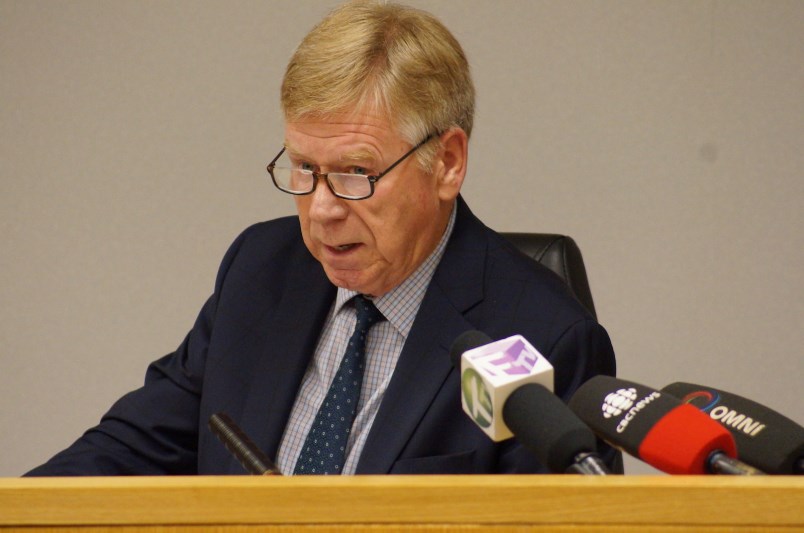Justice Austin Cullen, the commissioner for the inquiry into money laundering in British Columbia, says he’s been frustrated by a “lack of engagement” by various federal government agencies with his team.
Cullen said these agencies have “fallen short of expectations,” and in some instances he cannot fully trust the validity of federal government documents submitted to him and his counsel. Furthermore, he says he has been denied in-person interviews of federal employees.
Cullen expressed his concerns in an interim report Thursday. The report largely outlines the issues the inquiry will be exploring in its second phase, following a first phase that explored money-laundering topics via professional testimony.
But Cullen explained that “many federal agencies have been slow to comply” with their obligations to the inquiry – after the Canadian government pledged cooperation when the inquiry was created by the provincial government in May 2019.
Cullen said, “One area of particular concern involves Canada’s compliance with its obligation to identify the nature and character of documents in its possession or control.”
He first singled out the Financial Transactions and Reports Analysis Centre of Canada (FINTRAC), as an example.
“For example, FINTRAC’s initial list of documents was composed entirely of materials that were publicly available on its website, despite the fact that it generates a wide range of specialized strategic research for regime partners, policy makers and businesses,” said Cullen. “Another concern is that many of the documents produced by Canada have been redacted to the point that they provide no meaningful information.
“While Canada has revisited some of these redactions in recent months, the copious redactions in its original production impeded the work of the Commission.”
He continued, “Moreover, the significant discrepancy between its original production and the revised version of these documents casts doubt on the validity of the original redactions.
“Finally, I note that Canada has refused to allow Commission counsel to conduct in-person interviews with members of the Public Prosecution Service of Canada. Instead, it has asked that Commission counsel submit any questions in writing,” stated Cullen, conceding the inquiry’s terms of reference allow for the Crown having discretion to not discuss specific investigations or transactions.
“However, it seems apparent that federal prosecutors will have valuable insight into the challenges faced by law enforcement officials and prosecutors in the handling of money laundering offences and the approach taken by Canada will not allow these issues to be explored in an effective way,” said Cullen.
The commissioner’s assessment caught the ire of B.C. Attorney General David Eby on Thursday.
Ebay said, via a written statement, “I am profoundly concerned about the commissioner's advice …that there is an ongoing problem in co-operation and support from the Government of Canada.
“Most troubling to me is the apparent failure of FINTRAC, the federal anti-money-laundering agency, to share what it knows about what is happening in British Columbia with the commission.”
He added, "I never expected anything but full cooperation from Canada's only major anti-money-laundering agency. To have anything short of that, given the agency's stated mandate, is surprising and inexcusable.
"I have spoken this morning with Bill Blair, federal Minister of Public Safety and Emergency Preparedness, and he shares my concerns about the participation of this organization. He has pledged to assist however his office can in improving the response of this quasi-independent federal agency.
"Despite this disturbing revelation from the commissioner, I am heartened following my conversation with Minister Blair, in which he shared the federal government soon will announce significant changes in federal policing related to money laundering in our province. I look forward to that announcement.
"I appreciate Minister Blair's commitment to take action to ensure the information the commission needs is delivered swiftly and wish him success in working with cabinet counterparts and Prime Minister Trudeau to deliver the resources needed to find and prosecute the criminals laundering their profits from guns, poisoned drugs, violent crime and misery.
"The Province should not have to do this alone, and Minister Blair has assured me we are not on our own in this. Many British Columbians are watching what happens next carefully."



